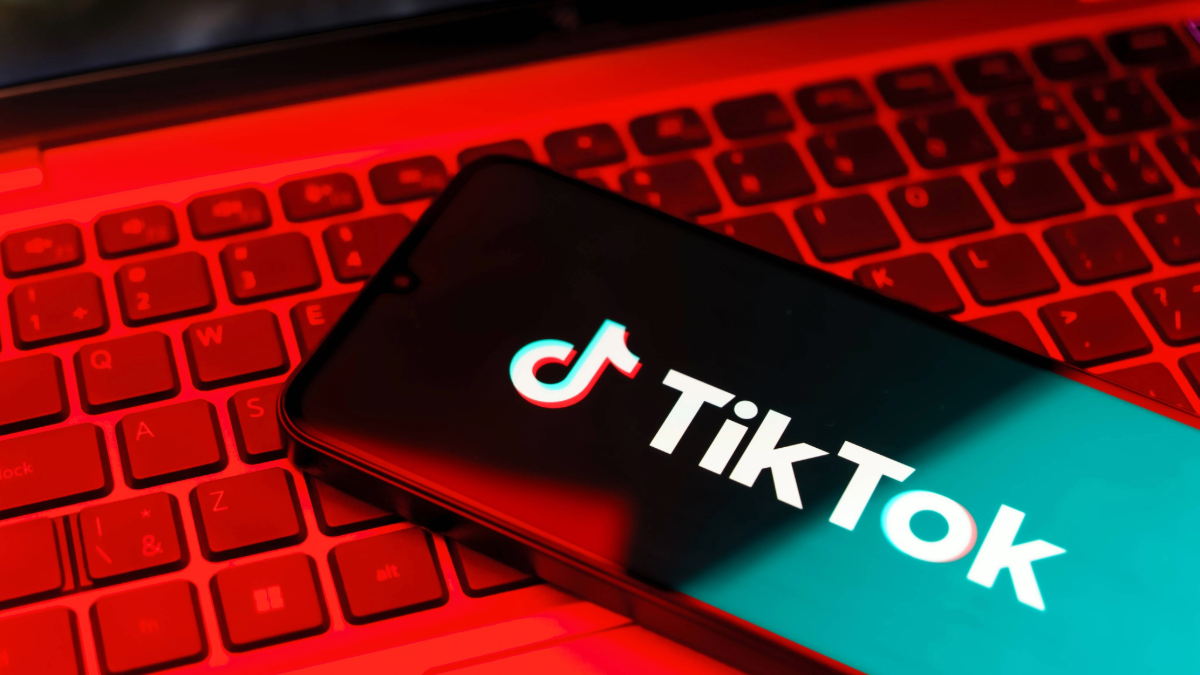US Supreme Court Upholds Constitutionality of Law That May Result in Ban of TikTok
Ben Lennett, Justin Hendrix / Jan 17, 2025On Friday, the US Supreme Court delivered its order upholding the constitutionality of the Protecting Americans from Foreign Adversary Controlled Applications Act, a law passed by Congress and signed by President Joe Biden in April 2024. The ruling affirmed the decision of the United States Circuit Court of Appeals for the District of Columbia. The Court found that the Act, which effectively bans TikTok in the US unless its Chinese parent company, ByteDance, sells it, does not violate the First Amendment rights of TikTok, its users, or creators.
“Speaking with and in favor of a foreign adversary is one thing. Allowing a foreign adversary to spy on Americans is another,” wrote Justice Neil Gorsuch in his concurring opinion.
The decision clears the way for a ban to go into effect on January 19, 2025, but there is substantial uncertainty about whether it will be enforced. President Biden will not enforce the ban before he leaves office on Monday, and President-elect Trump is said to be considering an executive order that would allow TikTok to continue its operations. Various lawmakers have indicated they will seek to avoid the app going dark.
The Supreme Court order is, as would be expected, deaf to the more recent politics of the matter. The Court considered a range of concerns in coming to its unanimous decision:
National security concerns
The Court recognized that Congress and the Executive branch determined that TikTok’s connection to ByteDance posed a threat to US national security. Officials had argued that the platform collects vast amounts of user data, which the Chinese government could access for purposes of espionage or coercion, and that the platform could be used for covert manipulation via its content and algorithmic recommendations. The Court decided that the data concerns were compelling, but it did not endorse the government’s assertion that “the covert manipulation of content” justifies the law.
- “Petitioners do not dispute that the Government has an important and well-grounded interest in preventing China from collecting the personal data of tens of millions of U.S. TikTok users.”
- “First, the Court rightly refrains from endorsing the government’s asserted interest in preventing 'the covert manipulation of content' as a justification for the law before us... One man’s ‘covert content manipulation’ is another’s ‘editorial discretion.’”
- “Congress would not have passed the provisions absent the foreign adversary control rationale... We need not determine the proper standard for mixed-justification cases or decide whether the Government’s foreign adversary control justification is content neutral. Even assuming that rationale turns on content, petitioners’ argument fails under the counterfactual analysis they propose: The record before us adequately supports the conclusion that Congress would have passed the challenged provisions based on the data collection justification alone.”
Intermediate scrutiny
The Court determined that the Act is a content-neutral regulation designed to advance an important interest of the government since it is tailored to impose a conditional ban on TikTok’s operations by requiring divestiture.
- “The Act’s prohibitions and divestiture requirement are designed to prevent China—a designated foreign adversary—from leveraging its control over ByteDance Ltd. to capture the personal data of U. S. TikTok users. This objective qualifies as an important Government interest under intermediate scrutiny.”
- “As applied to petitioners, the Act satisfies intermediate scrutiny. The challenged provisions further an important Government interest unrelated to the suppression of free expression and do not burden substantially more speech than necessary to further that interest.”
- “To survive intermediate scrutiny, ‘a regulation need not be the least speech-restrictive means of advancing the Government’s interests…’”
- “The challenged provisions meet this standard. The provisions clearly serve the Government’s data collection interest ‘in a direct and effective way.’ Ward, 491 U. S., at 800. The prohibitions account for the fact that, absent a qualified divestiture, TikTok’s very operation in the United States implicates the Government’s data collection concerns, while the requirements that make a divestiture ‘qualified’ ensure that those concerns are addressed before TikTok resumes US operations.”
Free expression and association
The Court acknowledged that TikTok facilitates significant expressive activities for its 170 million US users, but the Court concluded that the divestiture did not directly regulate expressive activity.
- “It is not clear that the Act itself directly regulates protected expressive activity, or conduct with an expressive component. Indeed, the Act does not regulate the creator petitioners at all. And it directly regulates ByteDance Ltd. and TikTok Inc. only through the divestiture requirement… Petitioners, for their part, have not identified any case in which this Court has treated a regulation of corporate control as a direct regulation of expressive activity or semi-expressive conduct.”
- “The challenged provisions are facially content neutral. They impose TikTok-specific prohibitions due to a foreign adversary’s control over the platform and make divestiture a prerequisite for the platform’s continued operation in the United States. They do not target particular speech based upon its content, contrast, e.g., Carey v. Brown, 447 U. S. 455, 465 (1980) (statute prohibiting all residential picketing except “peaceful labor picketing”), or regulate speech based on its function or purpose, contrast, e.g., Holder v. Humanitarian Law Project, 561 U.S. 1, 7, 27 (2010) (law prohibiting providing material support to terrorists).”
- “Nor do they impose a “restriction, penalty, or burden” by reason of content on TikTok—a conclusion confirmed by the fact that petitioners “cannot avoid or mitigate” the effects of the Act by altering their speech. Turner I, 512 U. S., at 644. As to petitioners, the Act thus does not facially regulate ‘particular speech because of the topic discussed or the idea or message expressed.’”
Data collection risks
The Court focused on the risks associated with TikTok’s data collection practices.
- “As applied to petitioners, the Act is sufficiently tailored to address the Government’s interest in preventing a foreign adversary from collecting vast swaths of sensitive data about the 170 million U.S. persons who use TikTok.”
- “...the House Report focuses overwhelmingly on the Government’s data collection concerns, noting the ‘breadth’ of TikTok’s data collection, ‘the difficulty in assessing precisely which categories of data’ the platform collects, the ‘tight interlinkages’ between TikTok and the Chinese Government, and the Chinese Government’s ability to ‘coerc[e]' companies in China to ‘provid[e] data.’ H. R. Rep., at 3; see id., at 5–12 (recounting a five-year record of Government actions raising and attempting to address those very concerns).”
- “Data collection and analysis is a common practice in this digital age. But TikTok’s scale and susceptibility to foreign adversary control, together with the vast swaths of sensitive data the platform collects, justify differential treatment to address the Government’s national security concerns. A law targeting any other speaker would by necessity entail a distinct inquiry and separate considerations. On this understanding, we cannot accept petitioners’ call for strict scrutiny. No more than intermediate scrutiny is in order.”
- “The prohibitions, TikTok-specific designation, and divestiture requirement regulate TikTok based on a content-neutral data collection interest. And TikTok has special characteristics—a foreign adversary’s ability to leverage its control over the platform to collect vast amounts of personal data from 170 million U.S. users—that justify this differential treatment.”
Timeline
A brief timeline of the Protecting Americans From Foreign Adversary Controlled Applications Act and court challenge:
- March 7, 2024. The bill advances unanimously out of committee, 50-0.
- March 13, 2024. The US House of Representatives takes the bill up for a floor vote. After 40 minutes of debate, the bill is overwhelmingly passed by voice vote, meeting the required two-thirds majority threshold with a 352 to 65 vote.
- April 20, 2024. The bill was attached to a national security and foreign aid spending bill that includes funding for Ukraine and Israel. The bill's language was amended to give ByteDance up to a year to sell its stake in TikTok. It passes the House of Representatives by a vote of 360 to 58.
- April 23, 2024. The bill passes the Senate as H.R.815. It is signed by the President on April 24, 2024.
- May 7, 2024. TikTok files a complaint in federal court challenging the constitutionality of the law.
- December 6, 2024. The US Court of Appeals for the District of Columbia concluded that legislation requiring ByteDance to divest TikTok “survive[s] constitutional scrutiny."
- December 13, 2024. The Court of Appeals denied TikTok's emergency motion for injunction.
- December 16, 2024. TikTok filed an emergency application for injunction with the Supreme Court.
- December 18, 2024. Supreme Court deferred application for injunction, but granted expedited review of the case.
- January 10, 2024. Supreme Court heard oral arguments in the case.
Authors


